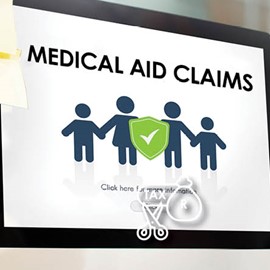
Medical scheme contributions and medical expenses paid out of your own pocket take a large bite out of your income, so it is good to know there is some tax relief for providing for your own healthcare costs.
![]() This comes in the form of a rebate – or reduction of your tax – for contributions paid to a medical scheme. A rand amount is allowed for each tax year and depends on the number of dependents for whom you are paying contributions.
This comes in the form of a rebate – or reduction of your tax – for contributions paid to a medical scheme. A rand amount is allowed for each tax year and depends on the number of dependents for whom you are paying contributions.
This tax credit is referred to as the medical scheme fees tax credit.
You may also be entitled to what is referred to as an additional medical tax credit for health-related expenses you paid yourself because you do not belong to a medical scheme, or because the scheme did not admit your claim or did not pay it in full. Read: What is the additional medical tax credit and who qualifies for it?
The credit for contributions
This medical scheme fees tax credit or rebate is only for contributions paid to a medical scheme registered under the Medical Schemes Act. You cannot claim the rebate for any health insurance products, such as a ![]() hospital cash plan or gap cover. Read more: What is a hospital cash plan?
hospital cash plan or gap cover. Read more: What is a hospital cash plan?
If you are paying contributions to a foreign medical fund that is registered in another country under legislation with provisions similar to those in the Medical Schemes Act, the contributions can be taken into account for the medical scheme fees tax credit.
The calculation of the rebate depends on the number of dependents for whom you are paying contributions.
Dependents include members of your family whom you support, as well as any one your scheme registers as a dependent.
How the credit is calculated
For each month that you pay your medical scheme contributions, you will enjoy a rand amount as a tax credit or rebate.
|
HOW IT ADDS UP See an example of how the tax credit adds up when you pay contributions for a family.
|
![]() You will also enjoy this same amount for the first dependent you register on your medical scheme membership – be it an adult or a child.
You will also enjoy this same amount for the first dependent you register on your medical scheme membership – be it an adult or a child.
After the first dependent, for every additional dependent – adult or child – registered on your medical scheme, you enjoy a further lesser rand amount as a tax credit.
The different rand amounts are based on contribution rates which are typically higher for adults and lower for children and the fact that a regular family would include two adult parents and children.
The rand amount of the rebate you will enjoy for each month you pay your contributions is determined ahead of each tax year and announced with the Budget. To view the amounts for the current tax year (or for the past tax year for which you are completing a tax return), visit our Tax Tables page.
Because the rand amounts relate to the number of dependents you have on your medical scheme, you will be asked to tell the South African Revenue Service (SARS) how many dependents you have registered on your scheme for each month of the year.
You can prove your membership to SARS with the medical scheme tax certificate your scheme issues each year.
For employees
If your employer is deducting your medical scheme contributions from your salary, any portion your employer is subsidising will be added to your income as a taxable fringe benefit. Your medical scheme fees tax credit will be taken into account before pay as you earn (PAYE) tax is deducted from your salary.
Part funding
If you are contributing towards, but not paying in full, a dependent’s medical scheme contributions, you can claim the medical scheme fees tax credit in the same proportion as you contribute. For example, if two siblings are each paying half of a parent’s medical scheme contributions, they can each claim 50% of the rebate.
|
TAX TIP
Medical expenses that you recoup by claiming on a health insurance policy - such as a hospital cash plan or gap cover policy - can also not be claimed as for the additional medical tax credit. |
